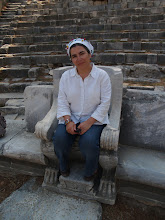Is a bundle of cells a feotus? Is the original single zygote, the fertilised egg, a human being ? These are the central questions at the heart of the Ethics of Stem Cell research. Little mention is being made in the western press about the Islamic view on this question. We, of course, know about the opposition of the Catholic church to this kind of research. And we, of course, know very much about all these denounced Islamic cultural memes which are different from ours.
Physicist Jim Al-Khalili compares Catholic and Islamic views on Stem Cell research in this article.
The embryo-is-a-human argument is based on the idea that the fertilised egg contains everything that is needed to replicate and that this is sufficient. But is this "potential" of becoming a human being really enough?
...According to Islamic teaching, I discovered, the foetus becomes a full human being only when it is "ensouled" at 120 days from the moment of conception, and so the research at Royan on human embryonic stem cells is not seen as playing God, as it takes place at a much earlier stage. Thus, while there is much that the west finds unpalatable about life under Islamic rule, when it comes to genetics they are not held back by their religious doctrine.
Reading this article, aside from thinking about the double standards applied in the western world when it comes to Islam as compared to other religions, I find it interesting that we can only rely on religion up to now to define what is a human being. Science, and neuroscience in particular, have part of the answer but the definition cannot come from the natural sciences alone. It should come from all the sciences related to the human being including Ethics. However, Ethics is still very much the playground of religion and law. We absolutely need a new science of Ethics independant but informed by the other sciences and domains of human beliefs including religion, and only this new science of Ethics can account for what is a human being.




No comments:
Post a Comment